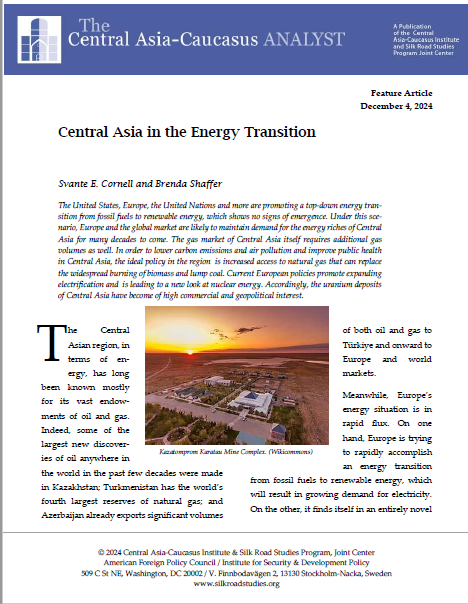Svante E. Cornell and Brenda Shaffer
December 4, 2024
The United States, Europe, the United Nations and more are promoting a top-down energy transition from fossil fuels to renewable energy, which shows no signs of emergence. Under this scenario, Europe and the global market are likely to maintain demand for the energy riches of Central Asia for many decades to come. The gas market of Central Asia itself requires additional gas volumes as well. In order to lower carbon emissions and air pollution and improve public health in Central Asia, the ideal policy in the region is increased access to natural gas that can replace the widespread burning of biomass and lump coal. Current European policies promote expanding electrification and is leading to a new look at nuclear energy. Accordingly, the uranium deposits of Central Asia have become of high commercial and geopolitical interest.





 Silk Road Paper S. Frederick Starr,
Silk Road Paper S. Frederick Starr,  Book Svante E. Cornell, ed., "
Book Svante E. Cornell, ed., "